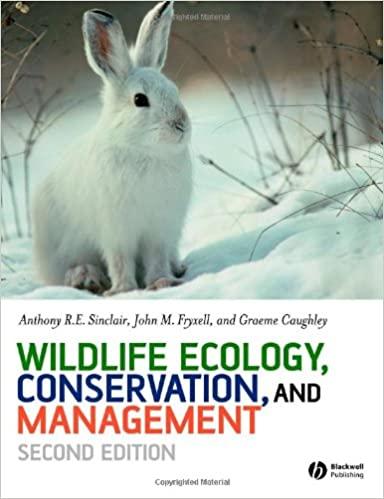Answered step by step
Verified Expert Solution
Question
1 Approved Answer
Human Networks Matter More Six Degrees of Separation is a play by John Guare that was made into a movie starring Stockard Channing, Donald Sutherland,
Human Networks Matter More
Six Degrees of Separation is a play by John Guare that was made into a movie starring Stockard Channing, Donald Sutherland, and Will Smith. The title is related to the idea, originated by the Hungarian writer Frigyes Karinthy, that everyone on Earth is connected to everyone else by five Karinthy or six Guare people. For example, according to this theory, you are connected to say, Eminem by no more than five or six people because you know someone who knows someone, who knows someone and so on By the same theory, you are also connected to a Siberian seal hunter. With the Internet, the number may in fact be closer to three people than five or six, but in any case, the theory points out the importance of human networks.
Suppose you want to meet your universitys president. The president has a secretary who acts as a gatekeeper. If you walk up to that secretary and say, Id like a halfhour with President Jones, you are likely to be palmed off on some other university administrator. What else can you do
If you are connected to everyone on the planet by no more than six degrees, then surely you are connected to your president in fewer steps. Perhaps you play on the tennis team, and you know that the president plays tennis. In that case, it is likely that the tennis coach knows the president. So arrange a tennis match with your coach and the president. Voil You have your meeting. It may even be better to have the meeting on the tennis court than in the presidents office.
The problem with the sixdegree theory, as Stockard Channing said so eloquently, is that even though those six people do exist, we do not know who they are. Even worse, we often do not know who the person is with whom we want to connect. For example, there is someone right now who knows someone who has a job for which you are perfectly suited. Unfortunately, you do not know the name of that person.
It does not stop when you get your job, either. When you have a problem at work, for example, setting up a blog within the corporate network, there is someone who knows exactly how to help you. You, however, do not know who that person is
Accordingly, most successful professionals consistently build personal human networks. They keep building them because they know that somewhere there is someone whom they need to know or will need to know. They meet people in professional and social situations, collect and pass out cards, and engage in pleasant conversation all part of a social protocol to expand their networks.
You can apply some of the ideas about computer networks to make this process more efficient. Consider it as a type of network diagram. Assume that each line represents a relationship between two people. Note that the people in your department tend to know each other and that the people in the accounting department also tend to know each other. That is typical.
Now, suppose you are at the weekly employee afterhours party and you have an opportunity to introduce yourself either to Linda or Eileen. Setting aside personal considerations and thinking just about network building, which person should you meet?
If you introduce yourself to Linda, you shorten your pathway to her from two steps to one and your pathway to Shawna from three to two. You do not open up any new channels because you already have channels to the people on your floor.
Full Alternative Text
However, if you introduce yourself to Eileen, you open up an entirely new network of acquaintances. So considering just network building, you use your time better by meeting Eileen and other people who are not part of your current circle. It opens up many more possibilities.
The connection from you to Eileen is called a weak tie in social network theory, and such links are crucial in connecting you to everyone in six degrees. In general, the people you know the least contribute the most to your network. Recall a recent social situation and identify two people, one of whom could have played the role of Linda someone in your group whom you do not know and one of whom could have played the role of Eileen someone in a different group whom you do not know How could you have introduced yourself to each person?
Does it seem too contrived and calculating to think about your social relationships in this way? Even if you do not approach relationships like this, are you surprised to think that others do Under what circumstances does this kind of analysis seem appropriate, and when does it seem inappropriate? Are you using people?
Consider the phrase Its not what you know, its who you know that matters. Relate this phrase to a network diagram. Under what circumstances is this likely to be true? When is it false? When is it ethical?
Describe how you can apply the principle the people you know the least contribute the most to your network to the process of a job search. Are you abusing your relationships for personal advancement?
Step by Step Solution
There are 3 Steps involved in it
Step: 1

Get Instant Access to Expert-Tailored Solutions
See step-by-step solutions with expert insights and AI powered tools for academic success
Step: 2

Step: 3

Ace Your Homework with AI
Get the answers you need in no time with our AI-driven, step-by-step assistance
Get Started


